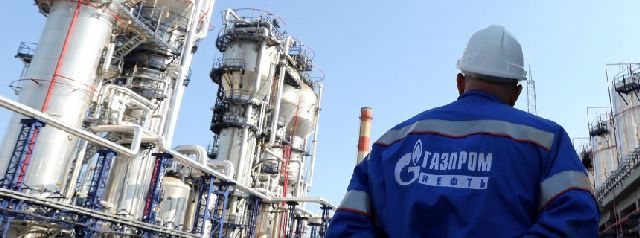–
–
The Israeli government confirms it is in talks with the Russian government on development of Israel’s gas fields. The statement was made in a written response to a question by Meretz chairwoman MK Zahava Gal-On to Prime Minister Benjamin Netanyahu if it was true that, he discussed with Russian President Vladimir Putin a “deal”, under which Russia would stop shipments of sophisticated weapons to the regime of Syrian President Bashar Assad in exchange for an Israeli commitment not to export gas to Europe.The response to Gal-On stated that “such conditions” were not discussed between Israel and Russia, but, “The Russian government is interested in the Israeli gas economy, and consequently, Russian companies are examining options of participating in the development of the Israeli gas economy.”
Will you offer us a hand? Every gift, regardless of size, fuels our future.
Your critical contribution enables us to maintain our independence from shareholders or wealthy owners, allowing us to keep up reporting without bias. It means we can continue to make Jewish Business News available to everyone.
You can support us for as little as $1 via PayPal at office@jewishbusinessnews.com.
Thank you.
Gal-On told “Globes” in response, “Instead of using natural gas as a lever for economic welfare and even peace, the prime minister and his emissaries are in secret negotiations with the nation of oligarchs.”
Gazprom JSC (RTS: GAZP; LSE: GAZD; DAX: GAZ) has chalked up a series of failures in its attempts to gain a foothold in the Israeli, Cypriot, and Greek energy markets. A year ago, Gazprom expressed an interest in acquiring 30% of the rights in the Leviathan gas field, but never made a financial offer, because of strong US objections. Its last serious attempt to enter Israel was when Ariel Sharon was prime minister. He supported the idea of Gazprom building a pipeline to Israel from Turkey, but then-Minister of National Infrastructures Yosef Paritzky objected.
Paritzky told “Globes” today, “When I was Minister of National Infrastructures in 2003, I met, at the request of the prime minister at the time, with Gazprom representatives. Although Ariel Sharon was prepared to favorably consider its entry to Israel, I objected. I did not then, and I do not want now, for Israel to be under political pressure from Russia because of Gazprom’s control of its energy sources. I hope that the prime minister will be wary of this now.”
Published by www.globes-online.com




